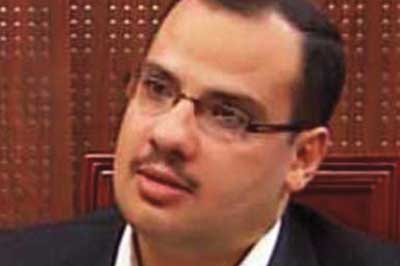There are several questions raised by the Hamas decision to participate in the Palestinian elections, and it is likely that the movement does not have the answers to them. The decision to participate was not even based on an agreed road map or joint national action plan. Instead, it is an escape forward and an attempt to correct a mistake in 2006 with a greater mistake in 2021.
What has happened is that Hamas and Fatah have agreed to keep the Palestinians busy throughout 2021 with three successive elections, instead of agreeing on the reconciliation that the Palestinian people have been waiting eagerly for throughout the past 15 years. The movements built their agreement on the completely wrong premise that the elections will lead to reconciliation. The truth is that elections created the division in the first place, and are likely to make it worse. There has been nothing said or done to make anyone think otherwise.
Reconciliation would have been more appropriate for an agreement between Hamas and Fatah. Holding elections under the current circumstances is nothing but a losing bet for Hamas in all scenarios. Fatah may also come out of them with losses if the breakaway movement led by Mohammad Dahlan manages to infiltrate the political process.
![Image of Mohamed Dahlan [Gaza1News/Facebook]](https://i0.wp.com/www.middleeastmonitor.com/wp-content/uploads/2017/06/2016_12_15-Mohammed-Dahlan-15493524_679076542272605_3797316299857197761_o.jpg?resize=500%2C333&ssl=1)
Mohammad Dahlan, a former senior Fatah official, 29 June 2017 [Gaza1News/Facebook]
If, for example, the elections end with Hamas losing the majority of the seats in the Palestinian Legislative Council, will the de facto Hamas government in the Gaza Strip hand it all over to Fatah? If it does, and the handover includes the security agencies, will the movement’s armed wing retain its weapons? Would it be allowed to keep its weapons legally?
What will happen to the 40,000 employees who are currently receiving their salaries from the Hamas government in Gaza if the Palestinian Authority is still run by Fatah after the elections?
Moreover, if the majority does return to Fatah; Mahmoud Abbas is re-elected as president, and international pressure is exerted on him to sign any agreement with the Israelis, then he is more likely to do what he is told because he would no longer be a lame-duck president with no legitimacy. However, even with a supportive PLC, the next Palestinian Authority president is going to be weaker under international pressure than he is today.
READ: We are dedicated to success of coming elections, says Hamas
In terms of representation, if Hamas loses the elections will it accept that the number of MPs that it has in the PLC will be reflected in the strength — or weakness — of its presence in the Palestinian National Council?
Israel didn’t allow Hamas legislators in the occupied West Bank to operate normally; many were harassed and arrested to take them out of the political equation. If Hamas wins the elections yet again with a majority of the legislative seats (which I think is unlikely), how can it govern in the West Bank? Will its elected officials and members be free to function normally? Are the Israeli occupation authorities going to stand idly by and watch this time, or will arrests, detentions, and harassment again be the norm?
Regardless of the election results, what will the next step be for Hamas and Fatah to end the division and reconcile? Have they agreed on solutions for the contentious issues? Or are we on the verge of elections that will simply create a new batch of contentious matters to be added to the previous list and thus deepen the division?
OPINION: Palestinian elections and the West
I believe that the Palestinians are jumping from one dilemma to a whole lot more, with no sign of any breakthrough now or in the future. As far as the factions are concerned, it seems that they are happy to keep people preoccupied with the elections so that they forget about everything else.
There is a fundamental crisis within Hamas, in that it lacks the means to hold its leaders accountable. Those who decided to participate in the 2006 elections were not held to account for what they did, and it is fair to say that those who have decided to take part in this year’s elections did so safe in the knowledge that they will not be held to account either.
Over the past 15 years, none of them appear to have reconsidered or reviewed their policies and outcomes. What’s more, it is unlikely that they will do this in the coming year. After all, they’ll be too busy with the elections.
This article first appeared in Arabic in Arabi21 on 8 February 2021. It has been translated and edited for MEMO.
The views expressed in this article belong to the author and do not necessarily reflect the editorial policy of Middle East Monitor.

![Senior Hamas official Khalil al-Hayya (R) speaks during a press conference on Palestinian election in Gaza City, Gaza on February 03, 2021 [Ali Jadallah/Anadolu Agency]](https://i0.wp.com/www.middleeastmonitor.com/wp-content/uploads/2021/02/20210203_2_46698002_62199621.jpg?fit=920%2C613&ssl=1)







